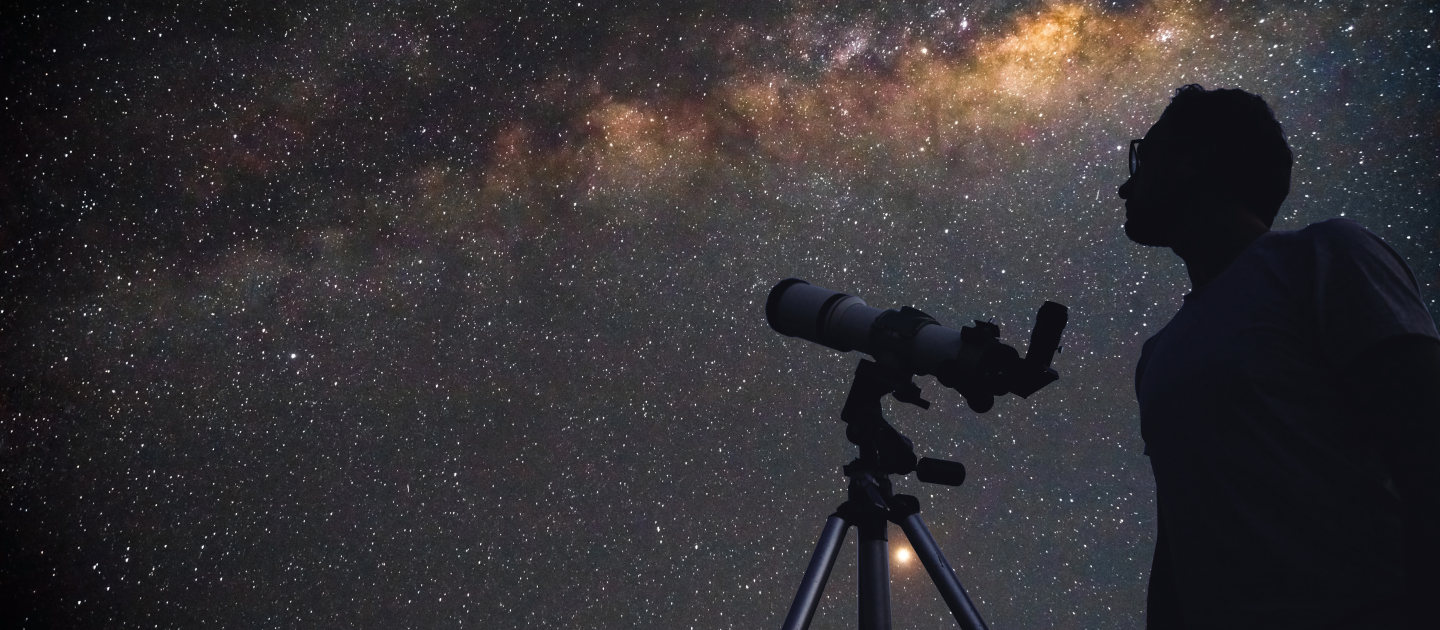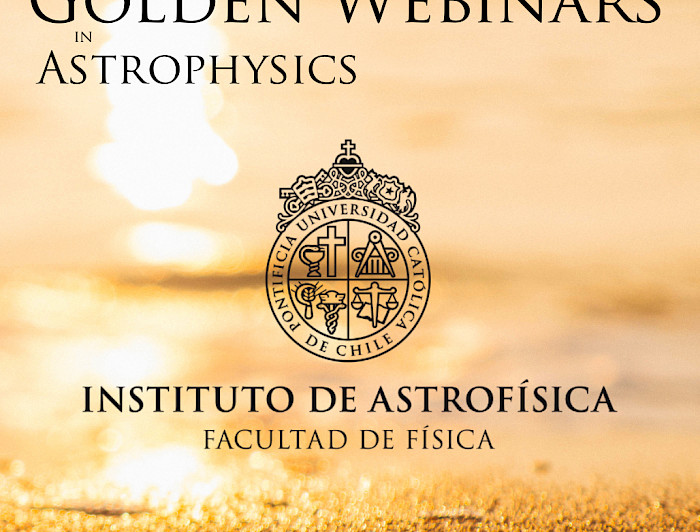
Golden Webinars: The astrophysics revolution on YouTube
An initiative that began to exchange ideas with other scientists has become a world astrophysics event. It is an opportunity to learn for free about the thoughts of the most brilliant minds in the world.

photo_camera Nobel Laureates and other leading figures in astrophysics worldwide have participated in this initiative of the UC Institute of Astrophysics, attracting scientists and the general public from all over the world. (Image: Golden Webinars poster)
"We could invite other people to talk... What if we invite prominent figures, Nobel Prize winners?" asked Thomas Puzia, faculty member of the Astrophysics Institute, to his research team in mid-2020, at the height of the pandemic.
Why not?
Within a few days, they had five "golden" speakers, and the "Golden webinars in Astrophysics" were born.
These webinars are a series of virtual conferences broadcasted on the YouTube channel of the Institute of Astrophysics. In just a few months, it has brought together internationally renowned researchers, reaching a vast audience from all over the world.
"Our Institute's Golden Webinars are consolidating as a brand that is recognized worldwide for the level of its speakers. Many of them have won awards such as Nobel Prizes, Shaw Prizes, and Gruber Cosmology Prizes, among other accolades. Our audience hails from all the continents, drawn by the possibility of learning how science is done and discussed, from the mouths of its protagonists," said Thomas Puzia.
The faculty member, who came up with this initiative, is also in charge of the dissemination area of the UC Astrophysics Institute.
Some notable figures invited by Puzia include:
- James Peebles, Nobel Prize in Physics, considered the father of cosmology;
- Didier Queloz, Nobel Prize in Physics, the first astronomer to find an exoplanet orbiting a solar-type star;
- Michael Brown, who had Pluto demoted from planet status;
- and Jill Tarter, the astronomer who inspired the movie Contact.
Since June 2020, nearly 50,000 spectators have had access to the most advanced knowledge in astrophysics through these free talks.
The impact of these webinars has gone beyond our borders. It has such an extent that last year the prestigious Nature Magazine highlighted the series, indicating that it was an unprecedented event for the dissemination of astronomy.
"There was nothing like the Golden Webinars: a presentation of the topic and then a half-hour discussion, where the audience could ask questions directly to the guest speaker. During the webinar, we receive questions from all over the world. The ones that are not answered are sent to the speaker with the people who asked it. It is a unique opportunity," said Puzia.
The initiative is supported by the National Research and Development Agency (ANID Spanish acronym) through a Regular Fondecyt project and the Center for Astrophysics and Related Technologies (CATA).
A stellar 2021 ahead
This year the initiative is "recharged."
On April 9, Pavel Kroupa, Astrophysicist, and Professor at the University of Bonn, Germany, gave a talk entitled: "From Belief to Realism and Beauty: Given the Non-Existence of Dark Matter, how do I navigate amongst the Stars and between Galaxies?"
On April 16, was Joel Primack, Professor of Physics and Astrophysics at the University of California, Santa Cruz; member of the Santa Cruz Institute for Particle Physics. His presentation was on "New Challenges in Cosmology, Galaxy Formation, and Planetary Science."
In April and May, the Golden Webinars will include three new Nobel Prize winners in Physics.
- The first will be Roger Penrose (April 30), who won the award in 2020 together with Reinhard Genzel from Germany and Andrea Ghez from the US. Together they established that the formation of black holes is a direct consequence of Albert Einstein's general theory of relativity.
- The next talk will be given by fellow Nobel laureate Reinhard Genzel (May 7). He received the Nobel Prize with his colleague Ghez. They found the most convincing evidence, so far, for the existence of a supermassive black hole at the center of our galaxy, the Milky Way.
- On Friday, May 14, it will be the turn of another Nobel laureate, Barry C. Barish. This American experimental physicist was the winner (along with Rainer Weiss and Kip Thorne) of the Nobel Prize in Physics "for his decisive contributions to the LIGO detector and the observation of gravitational waves."
Thomas Puzia does not stop here. "In the future, we would like to expand the topics to Engineering, Physics, Medicine, among others. The golden webinars are here to stay."
------------------------
*All the conversations have simultaneous translation into Spanish. Check the following "Golden Webinars in Astrophysics" dates and watch the previous talks through the following link.


